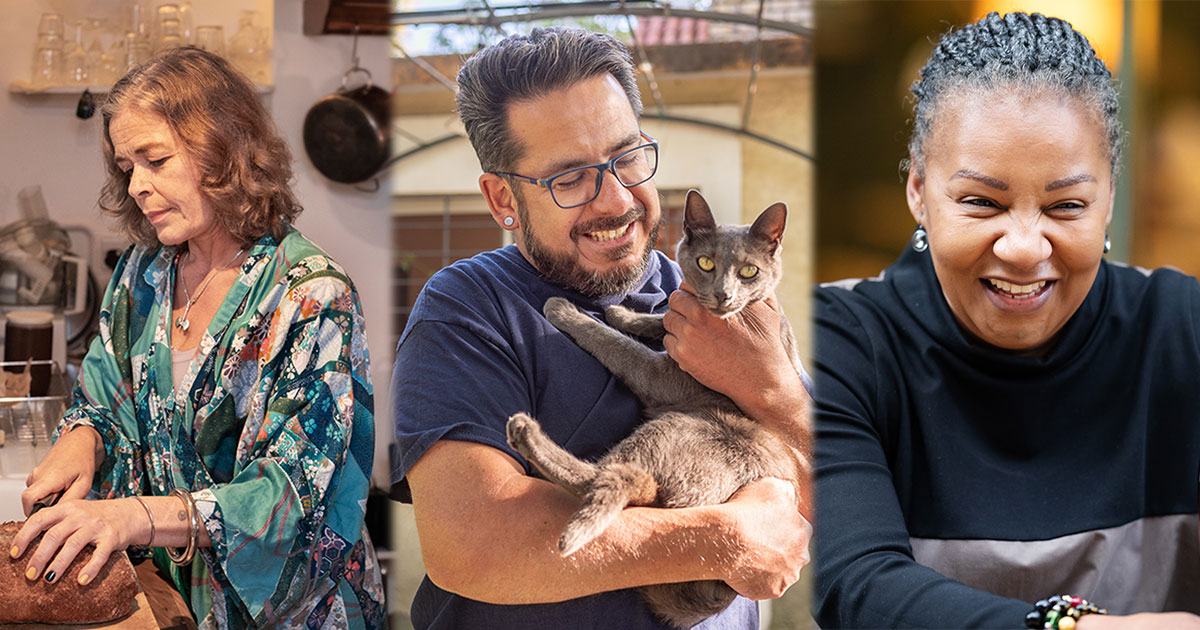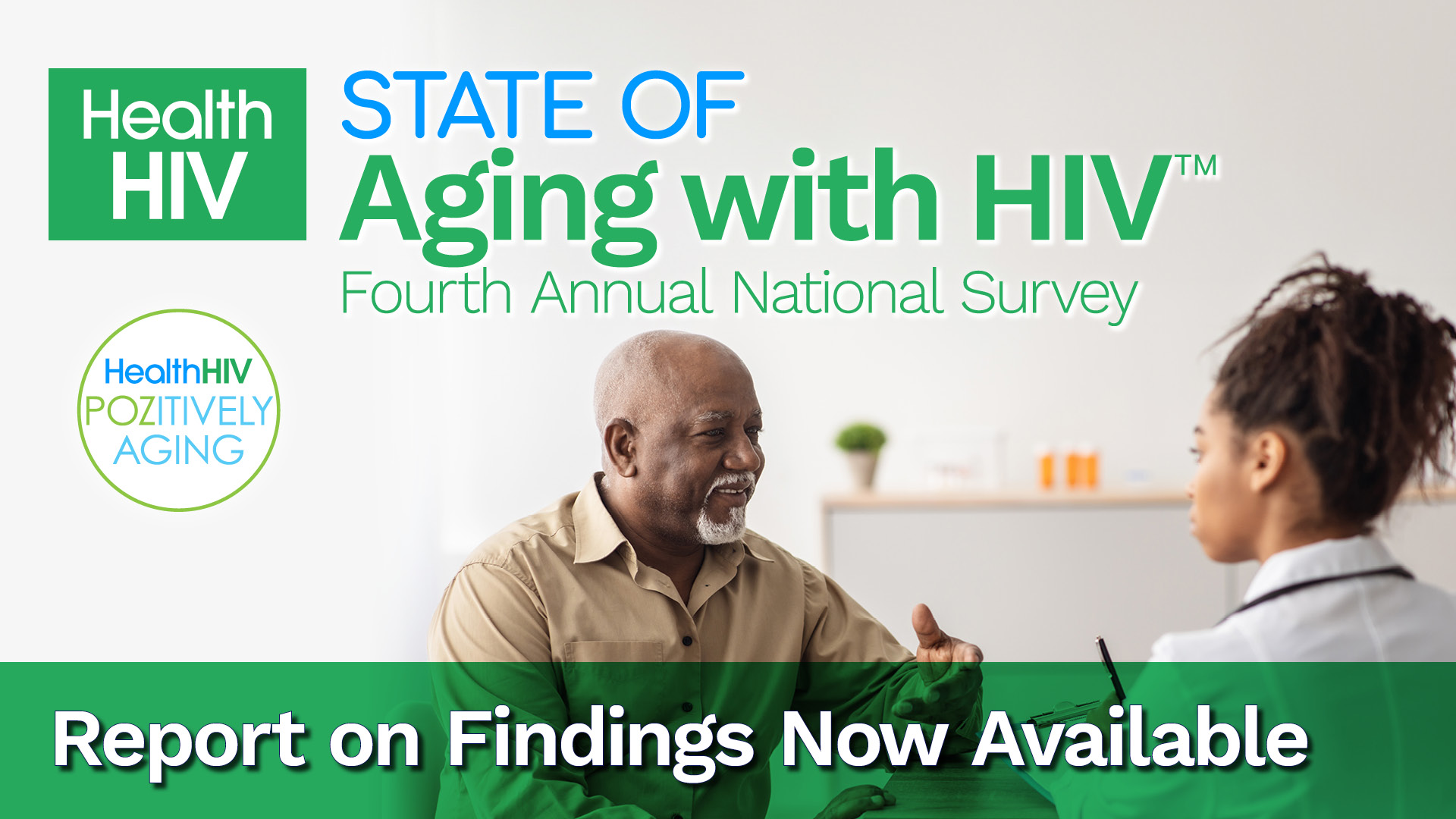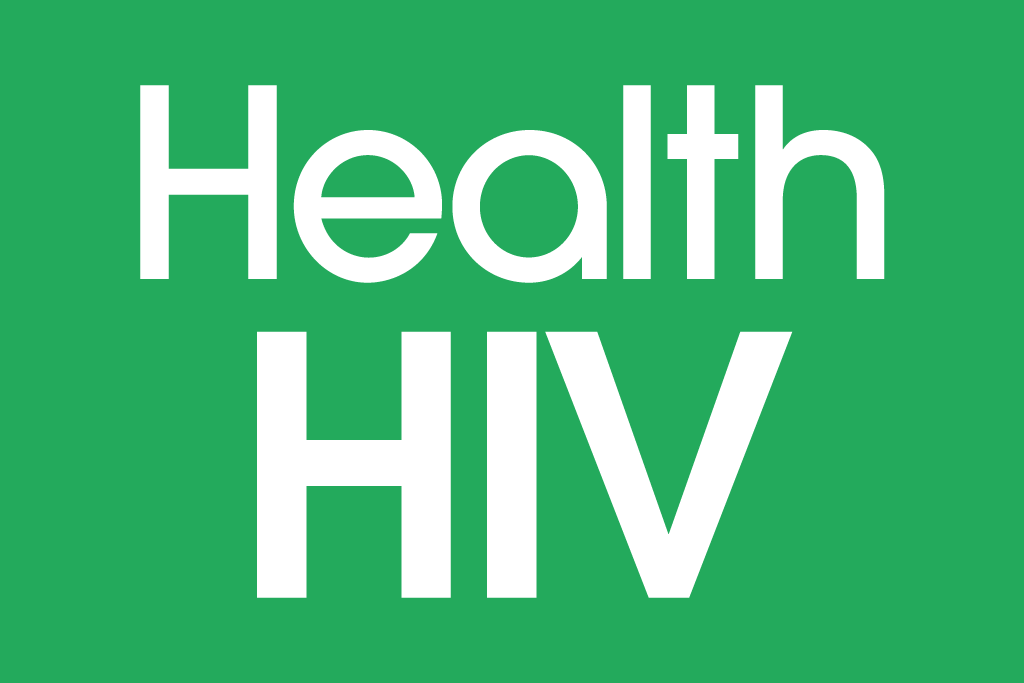The national resource center for care coordination and pozitively aging with HIV

The National Resource Center from HealthHIV builds the capacity of HIV and primary care providers to coordinate care for people living and aging with HIV across a lifetime. This program enhances provider and patient knowledge related to the experiences of PWH over 50 and the comanagement of conditions associated with aging with HIV through data collection and medical education.
HealthHIV’s Fourth Annual State of Aging with HIV™ National Survey examines crucial issues facing long-term survivors and adults aging with HIV. For the first time, this survey has two population focuses—one that reached the PAWH community and one that reached the workforce that provides health and human services to the population. The survey data was collected between August and September 2024 and included responses from 907 participants.
In coordination with HealthHIV’s Pozitively Aging program, the survey is dedicated to improving access to services and care coordination for People with HIV. Findings from this survey will be used in the creation of vital education and training materials for the HIV care workforce and will inform advocacy and research priorities for the coming year surrounding those aging with HIV.
Latest Aging with HIV Trainings
The State of Aging in 2024
This webinar features initial key findings from the HealthHIV Fourth Annual State of Aging with HIV™ National Survey and expert faculty, including from the Administration for Community Living (ACL), the Office of Infectious Disease and HIV/AIDS Policy of the Department of Health and Human Services, community organizations, and HealthHIV.
HIV and Aging Webinar Series: Exploring Data and Engaging in Discussions of HIV, Aging and Housing
There is a growing significant need for affordable housing options that meet the needs of the aging population within the U.S. including people aging with HIV. This live webinar delved into the changing landscape of HIV with a presentation of the key findings from the HealthHIV State of Aging with HIV™ Third Annual National Survey primary health services research report.
Retaining and Re-Engaging People Living With HIV in Care: A Unique Look at Challenges and Opportunities From the Perspective of the Patient, Navigator, and Provider
In this activity, an expert provider, navigator, and two patients explore the factors that contribute to people living with HIV (PLWH) falling out of care and different strategies that can be used for re-engaging PLWH back into the HIV care continuum.
Latest Aging with HIV Resources
Highlights from the Fourth Annual State of Aging with HIV Survey
Now in its fourth year, this national survey captures the experiences of people aging with HIV (PAWH) and the professionals who support them.
People on HIV drugs have ‘substantial’ Alzheimer’s protection: study
People taking drugs for HIV and hepatitis B are less likely to develop Alzheimer’s disease, according to a new study. UVA Health investigators now would like clinical trials to examine the potential of the HIV medications as a means to prevent Alzheimer’s disease.
Patients With HIV May Have High Prevalence of Long COVID
The prevalence of long COVID was high in patients living with HIV, according to a review published in eClinicalMedicine.
Recommendations for Incorporating Geriatrics Into HIV Care Include Attention to Both Body and Mind
Of the nearly 1.1 million people living with HIV in the United States in 2022, an estimated 54% were over 50 years old, according to the Centers for Disease Control and Prevention (CDC). Yet we are not doing enough to meet the needs of this population: A recent CDC study found that the country was on pace to miss all of its 2025 goals for improving the quality of life for people living with HIV age 50 and older.
Nearly 20% of New HIV Diagnoses Occur Among Older Adults
Patients aged 50 and older who were newly diagnosed with HIV often reported heterosexual transmission and were more often women when compared with those younger than 50, according to an analysis of patients in New York State that was published in JAIDS.
Aging with HIV: Understanding the Journey
Join Gilead Sciences and the American Society on Aging for a series of podcast conversations about caring for older adults living with HIV.
About the Pozitively Aging program
HealthHIV’s Pozitively Aging program improves access to services and care coordination for people with HIV (PWH) over 50 and health outcomes through enhancing care coordination/access, health literacy, and patient-provider communications. Pozitively Aging offers consumer facing education materials to strengthen self-management of care and health literacy for people aging with HIV.
HealthHIV’s National Resource Center for Care Coordination and Pozitively Aging with HIV
The National Resource Center from HealthHIV builds the capacity of HIV and primary care providers to coordinate care for people living and aging with HIV across a lifetime. This program enhances provider and patient knowledge related to the experiences of PWH over 50 and the comanagement of conditions associated with aging with HIV through data collection and medical education. Access the National Resource Center at AgingWithHIV.org.




